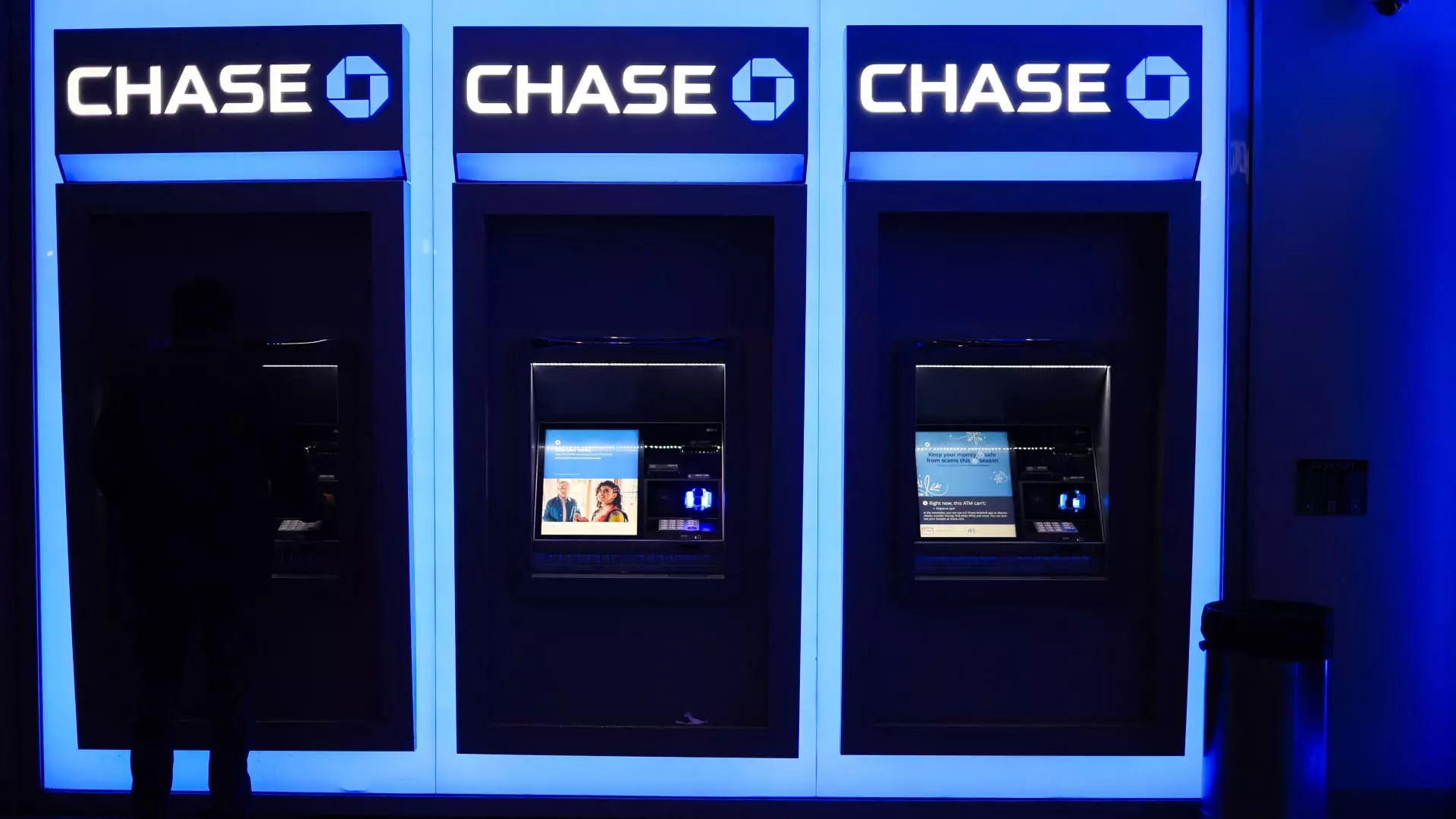In an era dominated by social media and viral trends, the concept of the “infinite money glitch” exploded into the public imagination last August. This phenomenon, where individuals exploited a loophole allowing them to withdraw from fraudulent checks before the money bounced, has caught the financial world off guard. What unfolded has not only led to the reckless misuse of banking systems but has also prompted one of the largest institutions in America, JPMorgan Chase, to recalibrate its legal strategies. This is not just a benign episode of mischief; it represents a fundamental breach of trust that could have serious ramifications for both the banking sector and those who engage in such fraudulent behavior.
JPMorgan’s swift transition from federal to state courts highlights a disturbing trend in today’s financial landscape—a move that might seem pragmatic on the surface but raises questions about the ethics of financially motivated litigation processes. With reports suggesting that the bank now seeks recompense for amounts as low as $75,000, one has to wonder where the line between legitimate legal action and mere corporate vengeance lies.
The Cost of Easy Money
As the bank dives into lawsuits concerning lesser amounts, the implications for average consumers become pronounced. In an age where rumors spread like wildfire, many individuals may have felt emboldened by perceived “free money” opportunities. The concept of profiting from such a glitch demonstrated an alarming sense of entitlement among some. One case from Gwinnett County, Georgia, illustrates this moral conundrum; a masked individual deposited a check of over $73,000 and subsequently withdrew $82,500. To many, this might initially appear as a clever hack, but to those governed by ethical principles, it is an outright betrayal of the financial system.
The fact that JPMorgan has initiated these lawsuits indicates its fierce commitment to preserving its financial integrity and deterring potential future fraud. However, a precarious balance exists between deterrent measures and the condemnation of consumers who may have made misguided choices in a moment of misguided inspiration. At this juncture, we must ask ourselves: Are we comfortable living in a society where technological ingenuity can easily morph into fraud, leaving financial institutions with no choice but to take legal action against their own customers?
A Corporate Dance with Morality
Drew Pusateri, a JPMorgan spokesman, asserts the need for the bank to “hold fraudsters accountable.” Yet the fervor with which the bank is pursuing lawsuits should make us pause. Is it righteous indignation, or is it revealing a deeper, more systemic problem within a broken financial culture? The lawsuits, thus far characterized by significant sums and clear patterns of theft, may simply reinforce a culture of fear, where people feel pressured to think twice about their financial decisions, knowing that they could easily fall prey to the ramifications of such schemes.
Moreover, one has to reflect on the consequences of attempting to bankrupt these alleged fraudsters. By fighting against bankruptcy filings, JPMorgan is positioning itself as a gatekeeper of morality in finance. However, it also runs the risk of appearing vindictive. In a nation that prides itself on second chances and rehabilitative justice, is it wise for a bank to pursue aggressive litigation against individuals who may have acted impulsively, albeit illegally?
The Broader Implications for Financial Trust
What all of this unveils is a societal fissure—a strain on the relationship between financial institutions and consumers. With more than 1,000 letters sent to customers demanding repayment for funds withdrawn amid the glitch, JPMorgan will likely fulfill its reputation as a resourceful and diligent bank. But at what cost? Perhaps it’s time to redefine the conversation around trust in financial systems. The question remains: Can clients feel secure in their banking relationships when their every transaction is dissected for potential wrongdoing?
As we navigate this evolving landscape, financial institutions should introspect on the implications of their responses to fraudulent activities. Are they prepared to cultivate a culture of understanding, or will they continue to fuel an environment of paranoia and adversarial relationships? Ultimately, the debate surrounding the infinite money glitch may represent something deeper about human behavior and the shared social contract that binds us to financial institutions. Trust is fragile and must be restored, not shattered.

